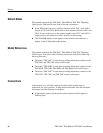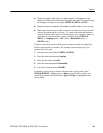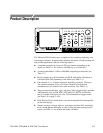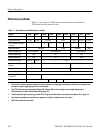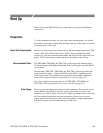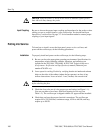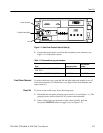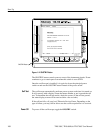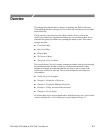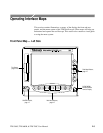
TDS 500C, TDS 600B, & TDS 700C User Manual
1–5
Start Up
Before you use the TDS Oscilloscope, ensure that it is properly installed and
powered on.
Preparation
To ensure maximum accuracy for your most critical measurements, you should
know about signal path compensation and the proper use of the probe you choose
to use with your oscilloscope.
Be sure you compensate your oscilloscope for the surrounding temperature. This
action, called Signal Path Compensation (SPC), ensures maximum possible
accuracy for your most critical measurements. See Signal Path Compensation on
page 3–142 for a description of and operating information on this feature.
The TDS 680B, TDS 684B, and TDS 784C oscilloscopes ship without probes.
To take advantage of the higher bandwidth of the oscilloscopes, order the P6245
Active Probe.
The remaining TDS 500C, TDS 600B, and TDS 700C oscilloscopes ship with
general-purpose probes — either the P6139A or the P6243, depending on the
oscilloscope model. The standard-accessory probes and quantities shipped for
these oscilloscopes are listed on in Standard Accessories on page A–4.
For a list of optional-accessory probes for all TDS 500C, TDS 600B, and
TDS 700C oscilloscope models, see Accessory Probes on page A–5.
Be sure you use the appropriate probe for the measurement. For instance, do not
use the P6245 Active Probe to measure signals greater than ±8 volts or with
more than ±10 volts of offset, since errors in signal measurement will result. (See
the User manual for the probe for more information.) Instead, use a passive
probe, such as P6139A passive probe, that allows higher voltage measurements.
The P6139A probe is for measurements up to ±500 volts.
Signal Path Compensation
Recommended Probes
Probe Usage



